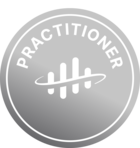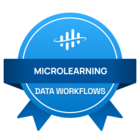While using cognite-sdk-dotnet, it needs API key whereas I have client-id and secret with me. How can I get the API key for the same? Or there is some alternative way to work with client-id and secret.
Solved
How to get CDF API Key
Best answer by Everton Colling
If you want to stick with using the .NET SDK you can use the MSAL .NET library to acquire a valid token. Here’s a minimal C# example that reads the AAD and associated CDF variables from environment variables, initiate an interactive flow to acquire the token and uses the token to instantiate the CDF client. If you refer to the MSAL documentation, it’s straightforward to extend this example to other authentication flows.
string clientId = System.Environment.GetEnvironmentVariable("CLIENT_ID");
string tenantId = System.Environment.GetEnvironmentVariable("TENANT_ID");
string cluster = System.Environment.GetEnvironmentVariable("CDF_CLUSTER");
string project = System.Environment.GetEnvironmentVariable("CDF_PROJECT");
var scopes = new List<string>{ $"https://{cluster}.cognitedata.com/.default" };
var app = PublicClientApplicationBuilder
.Create(clientId)
.WithAuthority(AzureCloudInstance.AzurePublic, tenantId)
.WithRedirectUri("http://local host")
.Build();
AuthenticationResult result = await app.AcquireTokenInteractive(scopes).ExecuteAsync();
string accessToken = result.AccessToken;
var httpClient = new HttpClient();
var client = Client.Builder.Create(httpClient)
.SetAppId("testNotebook")
.AddHeader("Authorization", $"Bearer {accessToken}")
.SetProject(project)
.SetBaseUrl(new Uri($"https://{cluster}.cognitedata.com"))
.Build();Be mindful that I had to separate the words local and host, as this is a word that’s currently not allowed in the Cognite Hub.
Enter your E-mail address. We'll send you an e-mail with instructions to reset your password.


 Check the
documentation
Check the
documentation Ask the
Community
Ask the
Community Take a look
at
Academy
Take a look
at
Academy Cognite
Status
Page
Cognite
Status
Page Contact
Cognite Support
Contact
Cognite Support



